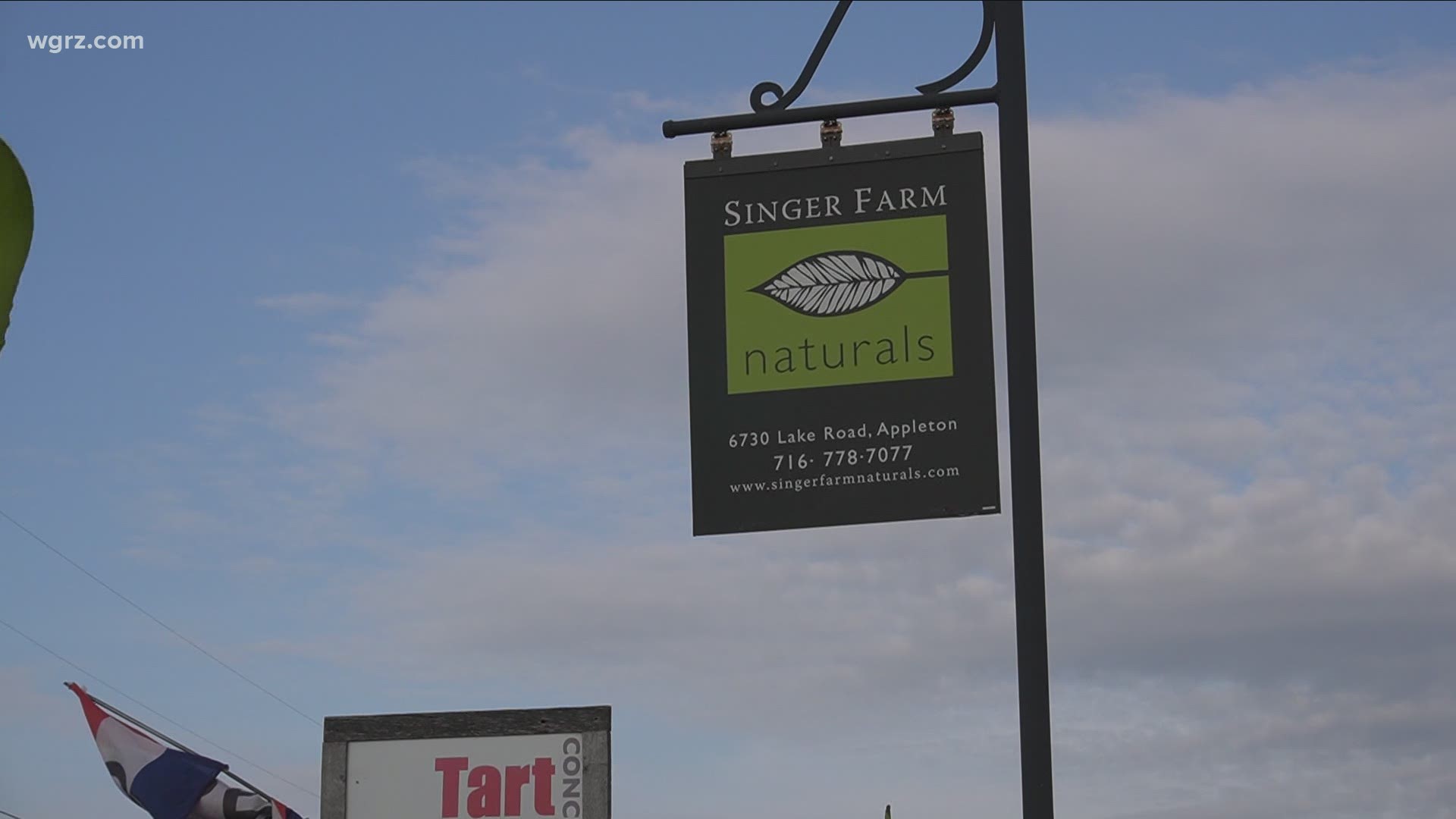APPLETON, N.Y. — Tom Szulist, the owner of 'Singer Farm Naturals' in Appleton, has been growing hemp for two years; the state's first venture into cannabis.
"Whether it would be hemp or cannabis, it's all the same, it's the same plant, just with different concentrations," Szulist said.
The concentrations are of two chemicals -- CBD, an analgesic, anti-inflammatory, and chemopreventive one, used to treat any number of ailments, and THC a psychoactive.
And until the passage of New York's adult-use marijuana legislation Wednesday, cannabis plants high in THC concentration weren't even a consideration for growers.
"But now we're in the planning stages," Szulist said.
He sees the state's new legislation as both an educational and business opportunity, and he thinks it will likely take several months of the state's two-year implementation plan, just to figure out how things will work.
"We're definitely going to apply as soon as we see what the parameters are and how to do it. My guess is that probably six months from now we'll probably have an idea on the cost," Szulist said.
Licensing and crop limitations are the two biggest unknowns, but with the state's planned cannabis regulatory agency yet to be set up, growers looking to jump into the adult-use are still in the dark.
"I think probably the hardest thing right off the bat is testing. How many milligrams of THC in a product, which no other state is doing right now, that I know of," Szulist said.
Added attorney Ryan Stearns: "I think everyone is just saying, 'What can I do to be the first person to get a license and be the first person to sell some pot in New York State?' "
Stearns is a member of the cannabis team at Lippes Mathias Wexler Friedman LLP. He says while hemp farmers have inquired, they've received a lot of other interest from those unconnected to cannabis.
"We have a lot of past precedent with medicinal licensing, medicinal cannabis licensing, CBD licensing, so we're using that as a guide to sort of look forward to what is going to happen with the recreational licensing," Stearns said.
He added that the next several months, if not more, for potential growers will be more about real estate and business structure more than actual growing.
Szulist also believes the state could give some early adopters the chance to grow this fall and "break-in" the new market, but New York hasn't released any details about anything like that yet.
"It's opening the doors for the industry and the industry is already started," Szulist said.

